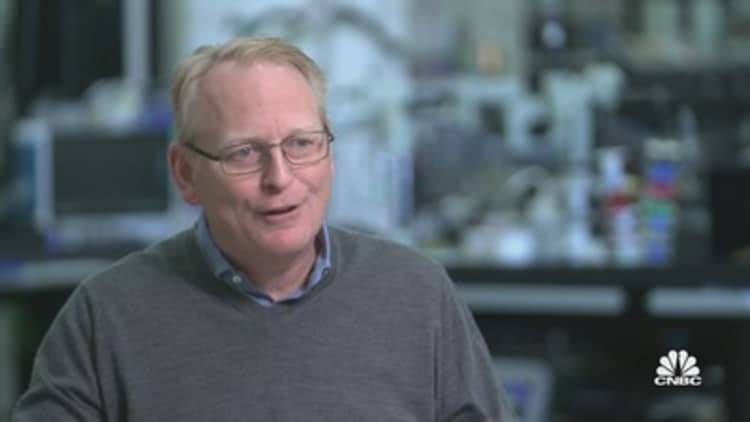
United Launch Alliance Atlas V rocket carrying the first two demonstration satellites for Amazon’s Project Kuiper broadband internet constellation stands ready for launch on pad 41 at Cape Canaveral Space Force Station on October 5, 2023 in Cape Canaveral, Florida, United States.
Paul Hennessey | Anadolu Agency | Getty Images
Amazon has set a date for the long-awaited maiden voyage of its Kuiper internet satellites.
The satellites are slated to take off on United Launch Alliance’s Atlas V rocket from Cape Canaveral, Florida, on April 9 at 12 p.m. ET, Amazon said in a blog post. The launch will be livestreamed on ULA’s website.
The mission is a pivotal step toward beginning commercial service for Amazon’s Project Kuiper, an initiative launched in 2019 that aims to provide broadband internet from a constellation of more than 3,000 satellites. Amazon has earmarked $10 billion for the project, though third-party analysts have said Kuiper could cost the company as much as $20 billion to get started.
Amazon completed its first test of the service in October 2023, when it sent up two prototype satellites. The company was expected to set its first operational satellites aloft last year, but the launch was delayed as ULA prioritized two U.S. Space Force missions.
“We’ve done extensive testing on the ground to prepare for this first mission, but there are some things you can only learn in flight, and this will be the first time we’ve flown our final satellite design and the first time we’ve deployed so many satellites at once,” Rajeev Badyal, vice president of Kuiper, said in a statement.
Kuiper will compete with other low earth orbit satellite internet providers including Elon Musk’s Starlink — which has a 7,000-plus satellite constellation, making it well ahead of Amazon — along with SoftBank-backed OneWeb and newer entrants like China’s SpaceSail.
Like its rivals, Amazon is marketing Kuiper to consumers who lack adequate access to broadband internet, along with governments and companies. Users connect to the service by purchasing terminals, which can send and receive signals from Kuiper satellites.
The clock is ticking for Amazon to meet a deadline set by the Federal Communications Commission, which requires the company to have half of its total constellation, or 1,618 satellites, up in the air by July 2026. Amazon has bought more than 80 launches from rocket providers including ULA, Musk’s SpaceX and Blue Origin, the rocket company owned by Amazon founder Jeff Bezos.
WATCH: Inside Amazon’s satellite factory






